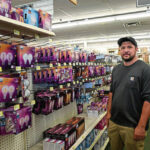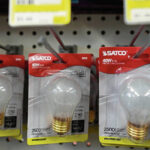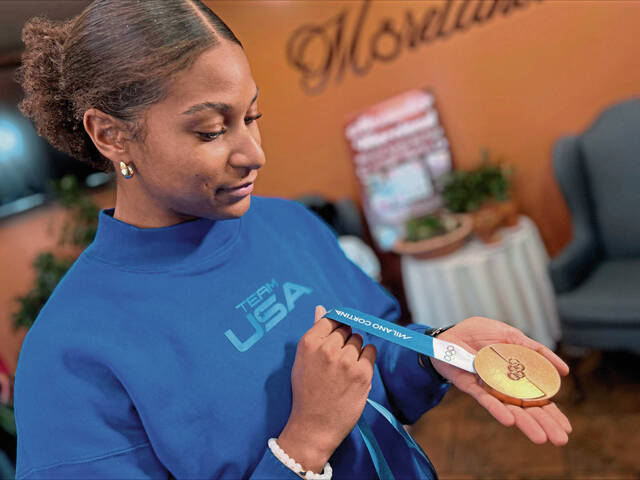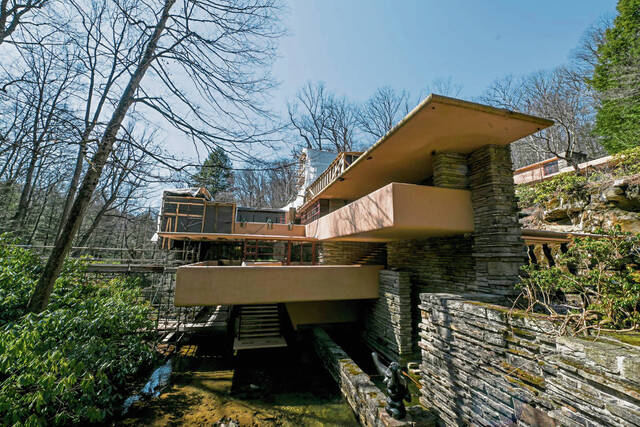Jim Zink is not sure what to do with his remaining stock of incandescent light bulbs.
Federal rules that took effect Aug. 1 prohibit the sale of most bulbs patented over a century ago by Thomas Edison. Now, Zink — owner of Hummell Brothers lighting store in Jeannette — is left with a supply of incandescent bulbs and no plan of how to get rid of them.
“In the past, with most other legal changes like this with products and product designs, suppliers and vendors and distributors were allowed to sell the product that they had in stock, but they weren’t able to manufacture any longer,” Zink said. “That has changed. Now, I’m not even allowed to sell my remaining stock. I’m assuming that they are telling me I have to destroy it.”
Zink stopped purchasing incandescent bulbs from suppliers about three or four months ago. He posted notices of the rules on the store’s windows and website to inform customers of the coming changes.
There was a 15% to 20% increase in the store’s incandescent light bulb sales in the last month, Zink estimated. But it was not enough to eliminate the supply from the shelves.
“I don’t think (the rule) is going to negatively impact my business, because it’s something that all of us have to follow through on,” Zink said. “I just think it’s wrong — the fact that I cannot sell my remaining inventory.”
Adam Burger has not noticed any changes in incandescent bulb sales at Eastwood Hardware in Penn Township, but customers have expressed complaints about the legislation.
“I think this was something that not a lot of people knew was coming, the general population,” Burger said. “Most people are just disappointed when they come in and they can’t get them anymore.”
Prior to the rule’s implementation, Eastwood Hardware saw a 50-50 split in sales of incandescent light bulbs and their LED, or light emitting diode, counterparts, Burger estimated.
While the “younger generation was more willing” to switch to LED bulbs for their long lifespan and energy efficiency, Burger said older individuals prefer the incandescent bulbs.
“I feel bad for the older generation that grew up on (incandescent bulbs),” Burger said. “That’s all they had … and now this is a completely new technology and territory.”
The price of LED bulbs has not helped ease customer’s concerns about the rule, he said.
A three-way LED bulb — a special type of bulb that produces three different levels of light — costs $16 at the store today, Burger said, but the incandescent version used to cost $3.
Zink said some of his customers question why they should be required to make the change to LED bulbs, preferring that it be the buyer’s choice.
But for Jim Posney, the rule is a “no-brainer.”
Despite the higher purchasing cost of LED bulbs, their energy efficiency will save customers money in the long run, said Posney, owner of Allegheny Valley Winlectric in Brackenridge.
Plus, standard, non-specialty LED bulbs have decreased in cost since their inception, Posney said. He estimates standard LED bulbs were about $8 each when they first began popping up in stores. Now, they cost around $4, he said.
“I would like to think that all households have been converted to LED (bulbs) by now,” Posney said. “You don’t even see the incandescents in grocery stores anymore. You don’t see them in Lowe’s. You don’t see them in Home Depot and certainly not in electrical supply stores.”
Posney stopped stocking incandescent bulbs at the store in 2015, apart from oven bulbs and “bug bulbs,” which are exempt from the regulation.
The store still has some fluorescent light bulbs, but LED bulbs began taking over the shelves around 2016-17.
Because suppliers have seen this rule in the works for more than a decade, it has been harder to purchase incandescent bulbs from them in recent years, said Gary Adams, owner of Bortz Hardware in Greensburg.
There are “some oddballs” that still prefer incandescent bulbs, Adams said, but he suspects they were unwilling to switch because they did not understand the LED technology.
“What (does the customer) really want? Do they want a bright light for a closet or do they want a soft light for the living room?” Adams said. “Once you get that out of them, then we show them — right here in the store — the difference in the actual color of the bulb, and it kind of sets their mind at ease. I tell them all the time, if they don’t like it, bring it back. And I don’t get many back.”
The rule was not clearly communicated to all local stores.
“It was news to me,” said Dylan Grindle who learned of the rule after it took effect.
“We have business accounts for the Greensburg, New Stanton and Youngwood area,” said Grindle, general manager of Hepler’s Hardware in New Stanton. “I’m sure if those businesses haven’t switched over already or need to switch over … we might have some bigger orders from different companies that would come in and want to purchase bulk (of the LED bulbs).”
Adams said he does not know how Bortz Hardware is supposed to handle 4-watt night light bulbs or Christmas lights. In LED form, these bulbs are 1-watt but cost $12.
“I don’t know if the legislation is going to take those away. I certainly hope not, because the (incandescent versions) are 4 watts to begin with,” Adams said. “There’s no cost advantage there at all.”
Burger agreed there has not been an “excess of information available” about the details of the rule, but Eastwood Hardware will have to wait and “see what happens.”
“I think everybody’s going to have to assimilate. This is what it is now,” Burger said. “There’s no other option.”











